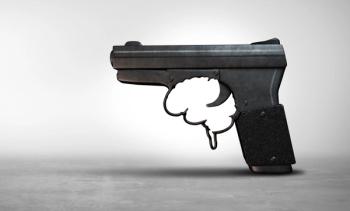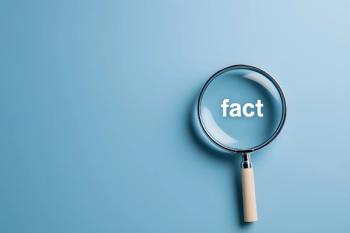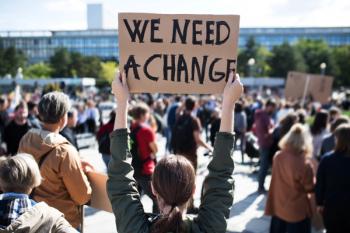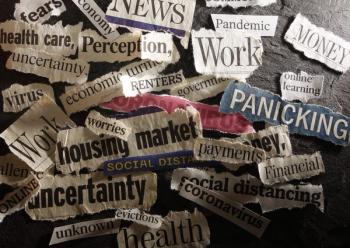
Holding on to Mental Health in a Time of Being Unmoored, With Siblings Day and Passover!
Key Takeaways
- The psychiatrist reflects on personal experiences and societal issues, emphasizing the feeling of being "unmoored" and the need for emotional stability.
- Trade conflicts, climate instability, and mental health challenges are highlighted as contributing to societal unease and individual anxiety.
In this time of crisis, it can be easy to feel unmoored. Here are a few celebrations to help keep us grounded.
PSYCHIATRIC VIEWS ON THE DAILY NEWS
Over a recent night, when one can imagine hearing Frank Sinatra singing “In the Wee Small Hours of the Morning,” I received several unusual email comments of personal concern. They included anxiety about a new medical procedure, a relationship rejection, a disruption in a group of psychiatrist colleagues, and a tentative psychiatric manifesto. These were not from patients, as I retired from seeing patients over a dozen years ago, but still, in some way, once a psychiatrist always a psychiatrist. I responded as compassionately and therapeutically as I could.
At midnight of the same night, our government had escalated the “trade war,” especially with China, instigating dramatic downs and ups with the stock market. Note the use of “war” for a trade conflict, as if it is part of a developing military war. And maybe it is.
Related to these matters is the polycrisis of war, climate instability, and burnout, with some “Americans Are Preparing for when All Hell Breaks Loose,” as the New York Times article from April 9 conveyed.1 Many citizens are preparing for when “all hell breaks loose” with their own military-style protection plans.
My wife Rusti, who sings the opening to many of my weekly videos, has noted that parallel to these reactions in an increase and desire for recipes, especially in the same New York Times. One recipe for “Sticky Miso Salmon Bowl” was accompanied by this comment: “I think this recipe actually cured my depression.”
No wonder that the recent Psychiatric Times poll on “Is Psychiatry Doing Enough to Address Federal Doubt of the Field?” revealed that over 70% answered “No” and only about 8% “Yes.”2
Is there some useful way to describe how these descriptions are making so many people feel? What came to my mind was feeling “unmoored.” Often, unmoored is applied to boats no longer being held in place. Related to people, it is used to describe little confidence about your ability to feel, behave, or do.
If unmoored fits, how to become moored again? Boats can look for calmer waters if at sea, or, if not, tied better to the dock or even moved to safer ground. Similarly, individuals can look for calm oases in their life and stay there more often, even right here if reading, venturing out when sensing that one’s mental health is moored.
In the wee small hours of the morning last night, I got an email from my sister Jo-Jo wishing me a happy Siblings Day. Somehow I missed that, even though I like to write about the meanings of anniversaries and holidays. It is a very important relationship; in old age, like mine now, siblings are likely to know each other the longest. Maybe my missing it is a reflection not of my relationship with my sister, but of the common challenging relationships between siblings, which is reflected by it not being a nationally recognized day. Permanent disruption or loss of the relationship is to be mourned. When they are good, though, like mine has blessedly been, they are always a place to moor oneself.
Hopefully, this weekend will be a belated time to celebrate Siblings Day for some. This weekend also brings the beginning of the annual Jewish Passover days. Passover celebrates the story and journey to freedom of the Jewish slaves in ancient Egypt and now, by extension, other people over history too. Much of the success of the Passover journey, albeit with some conflict, can be attributed to the siblings Moses, Aaron, and Miriam. It is a story to feel empathically moored in the history of a different kind of Liberation Day than was recently proclaimed.
Dr Moffic is an award-winning psychiatrist who specialized in the cultural and ethical aspects of psychiatry and is now in retirement and retirement as a private pro bono community psychiatrist. A prolific writer and speaker, he has done a weekday column titled “Psychiatric Views on the Daily News” and a weekly video, “Psychiatry & Society,” since the COVID-19 pandemic emerged. He was chosen to receive the 2024 Abraham Halpern Humanitarian Award from the American Association for Social Psychiatry. Previously, he received the Administrative Award in 2016 from the American Psychiatric Association, the one-time designation of being a Hero of Public Psychiatry from the Speaker of the Assembly of the APA in 2002, and the Exemplary Psychiatrist Award from the National Alliance for the Mentally Ill in 1991. He presented the third Rabbi Jeffrey B. Stiffman lecture at Congregation Shaare Emeth in St. Louis on Sunday, May 19, 2024. He is an advocate and activist for mental health issues related to climate instability, physician burnout, and xenophobia. He is now editing the final book in a 4-volume series on religions and psychiatry for Springer: Islamophobia, anti-Semitism, Christianity, and now The Eastern Religions, and Spirituality. He serves on the Editorial Board of Psychiatric Times.
References
1. Gibbons-Neff T. Americans are preparing for when all hell breaks loose. New York Times. April 9, 2025. Accessed April 11, 2025.
2. Poll results: is psychiatry doing enough to address federal doubt of the field? Psychiatric Times. April 9, 2025.
Newsletter
Receive trusted psychiatric news, expert analysis, and clinical insights — subscribe today to support your practice and your patients.







